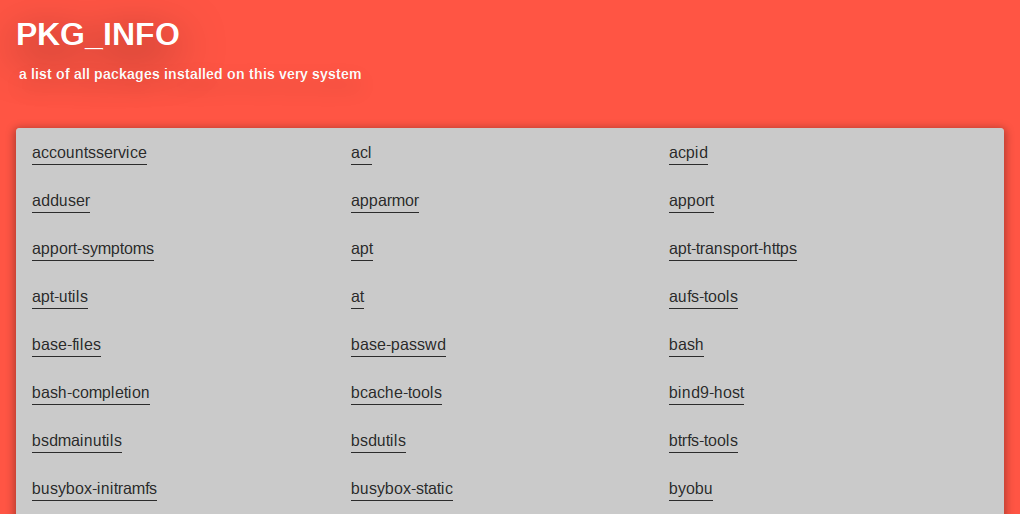You can see it in action here: http://159.65.204.100:8080/
There are 2 startup scripts under /commands.
start-dev.shstarts the app in dev modestart-prod.shstarts the app in prod mode
These will:
- link necessary files (
/var/lib/dpkg/status). - kill previous instances
- boot the
docker-composesystem
Dev is intended to be used locally and uses a dynamic frontend (HMR/livereload not working), on Prod the frontend is built statically under /volumes/static.
The nginx config also reflects this on both environments.
Run one of the two commands, navigate to http://localhost:8080
NOTE: If you're on a system that does not have (or can't read) /var/lib/dpkg/status then you have to place a dummy file under /volumes/data/dpkg_status manually before booting the application.
We have 3 containers:
backendfrontendnginx
backend: boots the API application which reads the file and listens on port 8000.
frontend: in dev it boots up a webpack-dev-server, on prod it builds it statically and places the output in /volumes/static/.
nginx: offers a reverse proxy to backend exposed under the /api endpoint.
On dev it also reverse proxies to webpack-dev-server, while on prod it serves the static frontend.
It's structured as follow:
- The main application markup is injected in the #root container by React.
- The top level container Root wrapps the app in a Redux Provider and an instance of React Router.
- The App has 2 routes, with their own page components: ListingPage and DetailPage.
- Each page triggers a fetch action to obtain the data it needs from the API.
- When this is received it re-renders with proper UI.
- Communication with the API is managed trough Redux
- Css is modularized on component level, except some globals
- HTML is kept to it's bare essentials
Backend uses Express as a router and has a simple abstraction to read and parse the file.
The file parsing is done trough Ramda.js composed functions.
I never used such a syntax or library so I had to learn it on the fly.
Enjoy looking at my packages!

